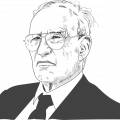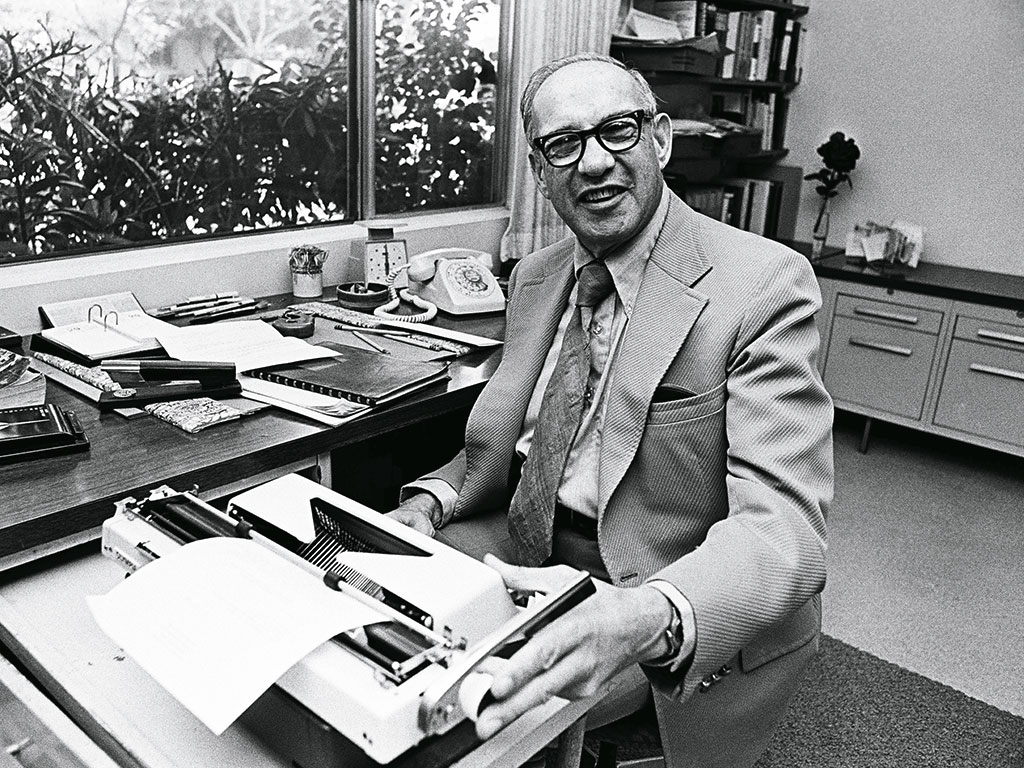Any crisis has its upside.
For example, “thanks to” the COVID-19 pandemic, the Peter Drucker Global Forum went online. The exclusive Vienna-based event opened up to a digital audience. In November 2020, I was one of them.
Throughout its 2-day programme of online sessions, the Peter Drucker Society convened many world-class thinkers. Among them were several business leaders who had met Peter Drucker, before he passed away 16 years ago. Their emotional testimonies struck me.
Some of them wept when remembering the meaningful conversations they had had with Peter Drucker and his wife, Doris. This situation made me curious: How does the memory of a man – 16 years after his death – make corporate leaders in a Zoom session full of strangers sob? It must be telling of his great legacy and the deep mark he must have left on people he has met.
A sense of urgency
Born in 1909 in Vienna, Peter Drucker became a young journalist in Germany in the 1930s. He witnessed the rise of national socialism in Germany and forced to flee to England in 1933 and the United States in 1937. He became a management consultant in 1942 after publishing his second book, The Future of the Industrial Man. Throughout his life, he was driven by a sense of urgency. Having learnt the hard lessons of WWII, he was concerned about what might happen if the central institutions of Western democracies failed to uphold their missions. He died in 2005, leaving behind no less than 39 books and the Drucker School of Management at Claremont University (California).
People-centric management
I started learning about Peter Drucker’s work in 2000, when I was a marketing professional at Unilever. His human centred approach surprised me. In any organisation, Drucker’s prime focus was on the people working in it. This people-centric approach was quite refreshing in the early 2000s when most corporate leaders were obsessed with sophisticated managerial tools overlooking the human factor.

There is nothing worse than doing the wrong thing well.
Peter Drucker

The best way to predict the future is to create it.
Peter Drucker

Management is doing things right;
leadership is doing the right things.
Peter Drucker

Most innovations, especially the successful ones,
result from a conscious, purposeful search
for innovation opportunities.
Peter Drucker

Whenever you see a successful business,
someone once made a courageous decision.
Peter Drucker

If you want something new,
you have to stop doing something old.
Peter Drucker

Only three things happen
naturally in organisations:
friction, confusion, and underperformance.
Everything else requires leadership.
Peter Drucker

The greatest danger in times of turbulence
is not the turbulence;
it is to act with yesterday’s logic.
Peter Drucker

Culture eats strategy for breakfast.
Peter Drucker

Management is doing things right;
leadership is doing the right things.
Peter Drucker
As the “Father of Modern Management”, Peter Drucker introduced many ground-breaking concepts, including:
-
-
Management by objectives. Drucker developed the concept that what gets measured improves.
-
-
-
Human/ethical leadership. He did not see management as a subject for business schools alone but as a Liberal Art. Leadership is not limited to business. It is relevant for any community or human endeavour.
-
-
-
The “cash cow”. Drucker also coined the “cash cow” metaphor in the mid-1960s. The Boston Consulting Group later modelled it in its famous matrix. Meanwhile, Peter Drucker recommended a strategy of planned abandonment whenever a new product within a firm’s portfolio challenges the “cash cow”. That enables the company to grow faster.
-
-
-
Company purpose. Peter Drucker understood early on that earning money was not the sole driver of employee motivation but by the company’s purpose. He introduced the notion of “company purpose” thirty years ago in an article published by the Harvard Business Review in 1989, “What Business Can Learn from Non-profits”. People in any organisation need to understand its purpose, essence, or “raison d’être” to deliver their best performance.
-
-
-
Customer-centricity. Drucker later distinguished the notions of essence and purpose. In 1994, he explained that a company’s essence is about making a difference, being helpful and creating something the world truly needs. In 2000, he stated that the purpose of a company is to create a customer.
-
Peter Drucker made a difference in management by combining a boundless curiosity about everything, a genuine kindness to everyone, and a unique ability to turn complex concepts into compelling and straightforward words. Something he must have learnt to do as a professional journalist.
The Peter Drucker Society
The mission of the Peter Drucker Society is to keep his legacy alive by inspiring a new approach to effective management in all sectors of society, thereby contributing to the continuous improvement of humanity.
This new approach hinges on combining ethical leadership, business purpose and meaningful engagement for individuals.





